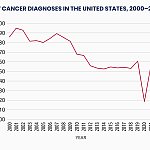
The fitness of the body’s cardiovascular and metabolic systems is a measure of one’s cardiometabolic health. A healthy cardiovascular system means a person has a strong heart and a healthy blood flow, while their
When people do not have good cardiometabolic health, this can raise their risk for
“Atherosclerotic cardiovascular diseases — mainly heart attack and stroke — are the leading cause of death in the U.S.,” Kevin C. Maki, PhD, adjunct professor in the School of Public Health-Bloomington at Indiana University and chief scientist at Midwest Biomedical Research told Medical News Today. “Type 2 diabetes is very common — about 10% of the adult population — and is a risk factor for cardiovascular disease, as well as other issues such as kidney failure.”
“It is well accepted that lifestyle — diet, physical activity, smoking,
Maki is the lead author of two new studies recently presented at the American Society for Nutrition’s annual meeting, NUTRITION 2025, which has found that consuming a diet higher in the omega-6 fatty acid linoleic acid may help support cardiometabolic health, and lower a person’s risk for type 2 diabetes and heart disease.
For these studies, researchers analyzed medical data from 1,894 adult participants of an observational study focused on COVID-19. Study participants had an average age of 50, an average body mass index (BMI) of 29, and more than half identified as female and non-Hispanic White.
Scientists focused on the amount of linoleic acid found in the serum in the blood of all participants.
“Linoleic acid is found mainly in vegetable oils that are used in cooking and are ingredients in many food products. Recently, there has been a great deal of controversy surrounding ‘seed oils’ such as corn oil and soybean oil. Some have claimed that these seed oils, which are rich in linoleic acid, cause inflammation.”
— Kevin C. Maki, PhD
“The level of linoleic acid in the blood is influenced by how much is consumed in the diet — higher intake leading to a higher level in the blood,” Maki continued. “We were interested in looking at the level of linoleic acid in the blood to see if it would be associated with cardiometabolic risk factors, specifically
Upon analysis, Maki and his team found that study participants with a higher concentration of linoleic acid in their blood serum were linked to lower levels of the inflammation biomarkers high-sensitivity C-reactive protein and glycoprotein acetyls.
“Chronic inflammation is a risk factor for cardiometabolic diseases,” Maki explained. “In particular, many studies have shown that a higher level of C-reactive protein is associated with increased risks for heart attack and stroke. There are also studies showing that drugs that reduce inflammation lower risks for heart attack and stroke.”
“Our findings do not support the view that higher linoleic acid intake is associated with more inflammation. In fact, they are more consistent with the opposite view because higher linoleic acid was associated with lower levels of inflammatory biomarkers.”
— Kevin C. Maki, PhD
“Some caution is needed because this was not an intervention study, so we cannot say that this association is cause and effect,” Maki added. “We can only say that we found the opposite of what would be predicted if linoleic acid was having a pro-inflammatory effect.”
Additionally, researchers found these same participants with more linoleic acid in their serum also experienced more favorable levels of BMI and biomarkers of glucose homeostasis, or even blood sugar levels.
“Higher BMI, along with higher fasting levels of glucose and insulin are risk factors for type 2 diabetes. Previous studies have shown that a higher circulating level of linoleic acid is associated with lower risk for developing type 2 diabetes. Our results are consistent with those, since they show lower levels of risk factors for type 2 diabetes in those with higher levels of linoleic acid in the blood.”
— Kevin C. Maki, PhD
“While we have to be cautious about interpretation of the results, our findings are consistent with favorable effects of linoleic acid consumption on cardiometabolic risk factors and not with unfavorable effects, as has been claimed by some online influencers,” Maki said.
“Intervention studies will be needed to further investigate the influence of changing intake of linoleic acid on the risk factors we studied,” he added.
MNT had the opportunity to speak with Cheng-Han Chen, MD, a board certified interventional cardiologist and medical director of the Structural Heart Program at MemorialCare Saddleback Medical Center in Laguna Hills, CA, about these studies.
“This research found that increased blood levels of linoleic acid (an omega-6 fatty acid) were associated with lower blood glucose levels and lower levels of inflammatory markers such as high-sensitivity C-reactive protein and glycoprotein acetyls,” Chen commented. “These findings are in line with our understanding of linoleic acid — found in vegetable oil, nuts, and seeds — as likely being beneficial to cardiometabolic health.”
“Heart disease continues to be one of the major disease burdens in our society. Lifestyle modifications such as diet improvements are essential in helping us improve cardiometabolic health in our patients and are a necessary part of improving health outcomes,” he said.
“Future research should prospectively study the impact of increased linoleic intake in the diet on the development of cardiovascular disease,” he added.
For readers who are now thinking about increasing their linoleic acid intake to possibly improve their cardiometabolic health, Monique Richard, MS, RDN, LDN, a registered dietitian nutritionist and owner of Nutrition-In-Sight, urged them to remember that the biomarkers measured in the studies are influenced by a variety of factors and nutrition science is complex.
“Nutrition science is rarely about one nutrient in isolation — context is everything. Nutrition is about patterns, not just parts. Linoleic acid is an essential omega-6 fatty acid, and like all nutrients, its benefit depends on the company it keeps. Foods that naturally contain linoleic acid — like sunflower seeds, walnuts, tofu, eggs, and fish — come packaged with fiber, protein, vitamins, and minerals, not just isolated fats.”
— Monique Richard, MS, RDN, LDN
Richard encouraged readers to consume a variety of both monounsaturated and polyunsaturated fats, and to concentrate on incorporating more whole foods, more often.
“Consider linoleic and other fatty acids to be an accessory or an assistant in helping bring out the food’s flavor, such as in a saute, marinade, sauce, or a vehicle to add spice, herbs, or enhance mouthfeel and moisture,” she continued.
“Chronic low-grade inflammation can be exacerbated from poor dietary sources of linoleic acid, so those that have conditions such as diabetes, cardiovascular disease, and metabolic syndrome do need to be aware of overall patterns, quality of ingredients, and amounts,” Richard added.
“It is important to note the necessary and optimal balance of the ratio of omega-6 to omega-3 fatty acids (is) something a registered dietitian nutritionist (RDN) can assist in assessing.”
— Monique Richard, MS, RDN, LDN





